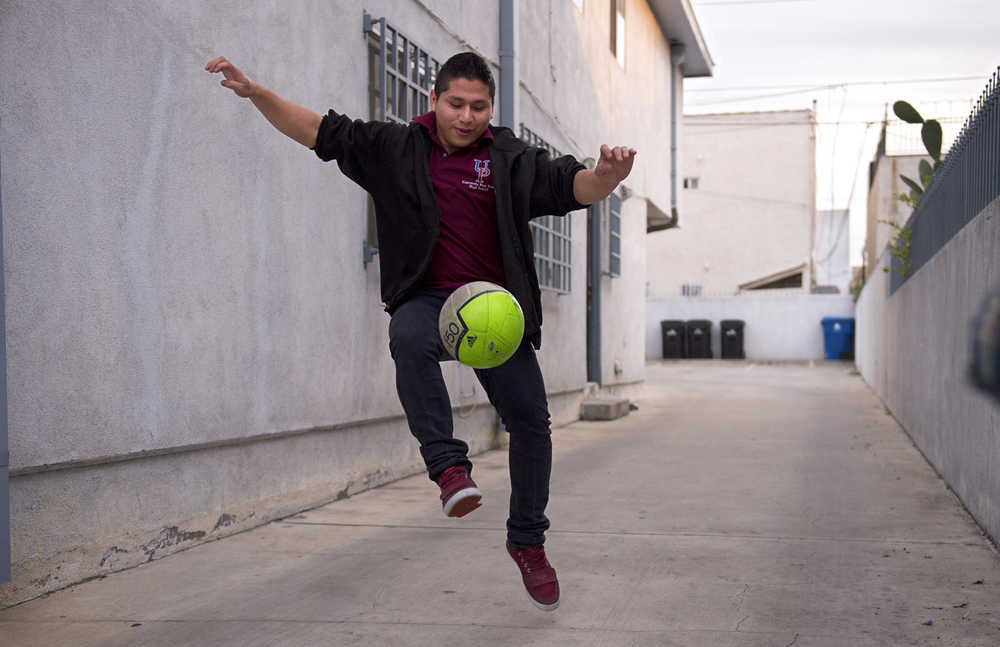LOS ANGELES — As tens of thousands of children fleeing violence in Central America crossed the border in search of safe harbor, overwhelmed U.S. officials weakened child protection policies, placing some young migrants in homes where they were sexually assaulted, starved, or forced to work for little or no pay, an Associated Press investigation has found.
Without enough beds to house the record numbers of young arrivals, the U.S. Department of Health and Human Services lowered its safety standards during border surges in the last three years to swiftly move children out of government shelters and into sponsors’ homes. The procedures were increasingly relaxed as the number of young migrants rose in response to spiraling gang and drug violence in Honduras, Guatemala and El Salvador, according to emails, agency memos and operations manuals obtained by AP, some under the Freedom of Information Act.
First, the government stopped fingerprinting most adults seeking to claim the children. In April 2014, the agency stopped requiring original copies of birth certificates to prove most sponsors’ identities. The next month, it decided not to complete forms that request sponsors’ personal and identifying information before sending many of the children to sponsors’ homes. Then, it eliminated FBI criminal history checks for many sponsors.
Since the rule changes, the AP has identified more than two dozen children who were placed with sponsors who subjected them to sexual abuse, labor trafficking, or severe abuse and neglect.
“This is clearly the tip of the iceberg,” said Jacqueline Bhabha, research director at the FXB Center for Health and Human Rights at Harvard University. “We would never release domestic children to private settings with as little scrutiny.”
Advocates say it is hard to gauge the total number of children exposed to dangerous conditions among the more than 89,000 placed with sponsors since October 2013 because social workers could not find many of the migrants designated for follow-up. The advocates and contractors also say they repeatedly warned HHS beginning in 2012 about the steady increase in children arriving at the border. Even the agency warned case management staff the following year of “fraudulent sponsors” in Colorado, Iowa and Minnesota who had sought to claim multiple, unrelated minors.
Federal officials won’t disclose details of how the agency was stretched so thin, but say they are strengthening procedures as the number of young migrants once again rises, and recently signed a contract to open new shelters.
“We are not taking shortcuts,” HHS spokesman Mark Weber said. “The program does an amazing job overall.”
One of the cases reviewed by the AP involved a then-14-year-old from Guatemala who arrived in the U.S. in September 2014 and was sent to a sponsor’s apartment in Los Angeles, where he was held for three weeks. In an interview, Marvin Velasco said his sponsor, a distant relative who he had never met, deprived him of food.
“He told authorities that he was going to take me to school and help me with food and clothing, but it wasn’t like that at all,” said Velasco, who since has been granted special legal status for young immigrants. “The whole time, I was just praying and thinking about my family.”
Unlike the extensive screenings required in the U.S. foster care system, HHS’ Office of Refugee Resettlement had stopped requiring that social workers complete extensive background checks or fingerprint most sponsors when they placed Velasco with his brother-in-law’s father. Social workers never visited the apartment before Velasco arrived or checked on him afterward, said Gina Manciati, the boy’s attorney.
Velasco said there were nine others living in the apartment and the sponsor demanded rent and told him he would be punished if he left. When Velasco told the sponsor he wanted to study, the man called the boy’s parents in Guatemala, threatening to kick him out if they didn’t pay.
With help from the sponsor’s son, Velasco escaped and sought sanctuary in a nearby church, where he met a parishioner who became his legal guardian. He now is living with a Guatemalan immigrant family that is raising him as their son.
Other accounts uncovered by the AP include:
A 14-year-old Honduran girl whose stepfather forced her to work at cantinas in central Florida where women drink, dance and sometimes have sex with patrons.
A 17-year-old from Honduras sent to live with an aunt in Texas, who forced her to work in a restaurant at night and clean houses on weekends, and often locked her in the home.
A 17-year-old Guatemalan placed in the home of a friend’s brother in Alabama, where he was made to work in a restaurant for 12 hours a day to earn rent.
A Central American teen placed with a family friend who forced her to cook, clean and care for younger children in a Florida trailer park.
Experts including a psychologist and an attorney cited cases in which unaccompanied children were raped by relatives or other people tied to their sponsors.
Weber said ORR has added more home visits and background checks since July, when federal prosecutors charged sponsors and associates with running a trafficking ring in rural Ohio that forced six unaccompanied minors to work on egg farms under threat of death for up to 12 hours a day.
“I know we learn from lessons and keep trying to improve the system to ensure the child is placed in a safe place, and I’m confident the vast majority of the kids are,” Weber said.
Sen. Rob Portman, R-Ohio, who chairs the Senate’s bipartisan Permanent Subcommittee on Investigations, said he will hold a hearing on the agency’s child placement program Thursday because he is concerned that the failures are systemic.
“We think reforms are necessary and urgently required because there are kids right now who are coming in over the border,” Portman said. “This is a problem that has to be addressed.”
___
The AP National Investigative Team can be reached at investigate@ap.org

